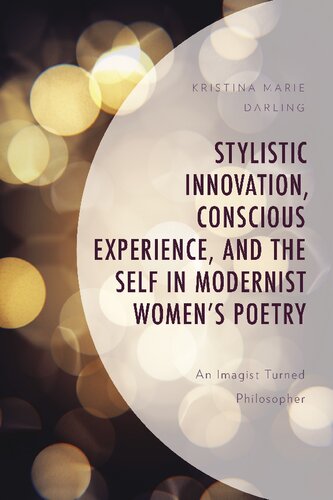

Most ebook files are in PDF format, so you can easily read them using various software such as Foxit Reader or directly on the Google Chrome browser.
Some ebook files are released by publishers in other formats such as .awz, .mobi, .epub, .fb2, etc. You may need to install specific software to read these formats on mobile/PC, such as Calibre.
Please read the tutorial at this link: https://ebookbell.com/faq
We offer FREE conversion to the popular formats you request; however, this may take some time. Therefore, right after payment, please email us, and we will try to provide the service as quickly as possible.
For some exceptional file formats or broken links (if any), please refrain from opening any disputes. Instead, email us first, and we will try to assist within a maximum of 6 hours.
EbookBell Team

4.8
94 reviewsStylistic Innovation, Conscious Experience, and the Self in Modernist Women's Poetryexamines representations of philosophical discourses in Modernist women's writing. Philosophers argued in the early twentieth century for an understanding of the self as both corporeal and relational, shaped and reshaped by interactions within a community. The once clear distinction between self and other was increasingly called into question. This breakdown of boundaries between self and world often manifested in the style of early twentieth-century literary works. Modernist poetry, like stream of consciousness fiction, used metaphor, sound, and a revision of received grammatical structures to blur the boundaries between the individual and collective. This book explores the ways that feminist writers like Mina Loy, H.D., Gertrude Stein, and Marianne Moore used style and technique to respond to these philosophical debates, reclaiming agency over a predominantly male philosophical discourse. While many critics have addressed the thematic content of these writers' work, few scholars have taken up this question while focusing on the style of the writing. This book shows how these feminist poets used seemingly small stylistic choices in poetry to make necessary contributions to contemporary philosophical discourses, ultimately rendering these philosophical conversations more inclusive.